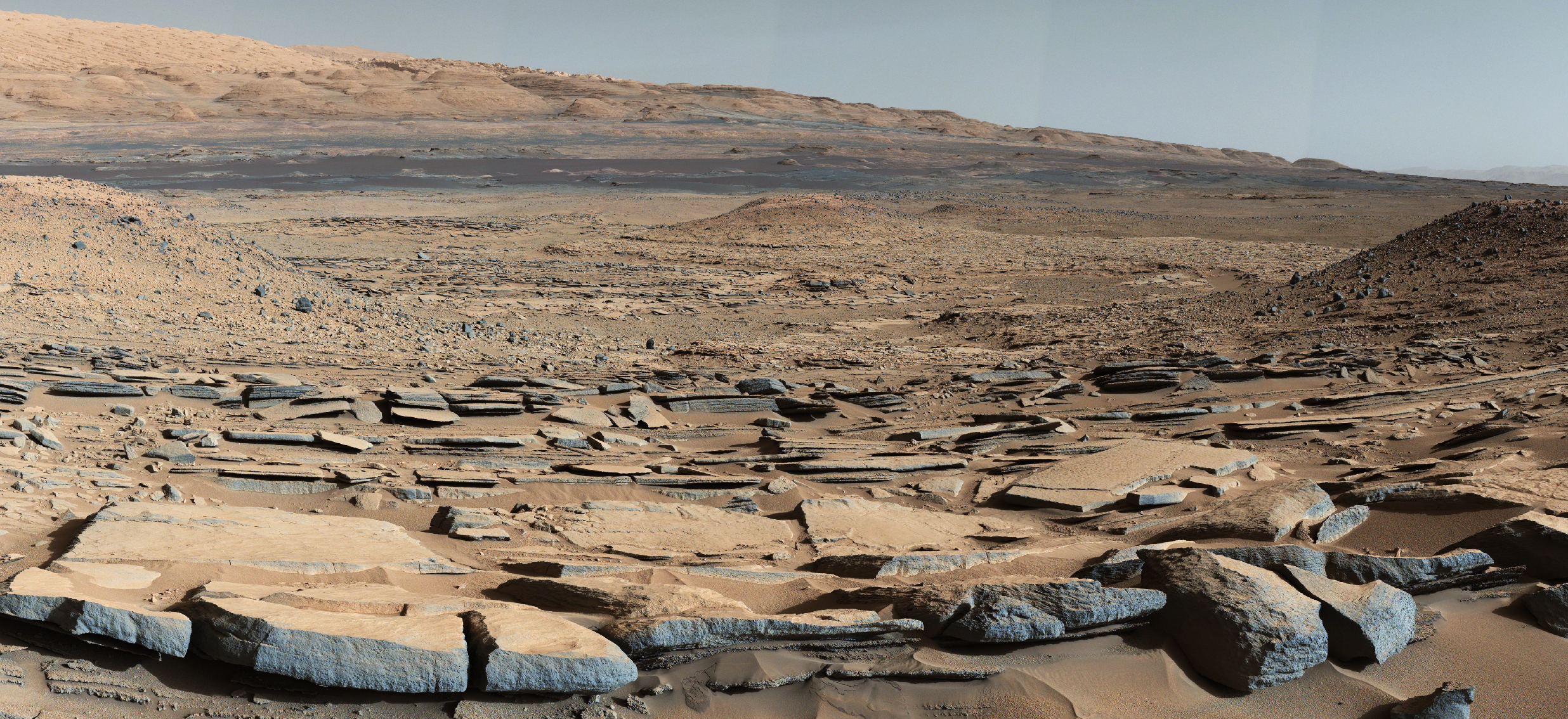Recipe for life on Mars may lie in 'marsquakes'
Digital Reporter
Friday, September 23, 2016, 5:44 PM - Though a thriving civilization of little green men is a little much to hope for, there's a good chance Mars once would have been able to support liquid water and at least microbial life.
Looking for evidence of those conditions is one of the tasks of NASA's Curiosity rover, but now Earth-bound scientists have a new hypothesis on where life may be hiding: Mars quakes.
The researchers, whose findings were published in the journal Astrobiology, studied earthquakes in Scotland's Outer Hebrides, specifically what happens when rocks are ground together during temblors.
When that happens, several elements are released, among them hydrogen, and the studies have found that, in Earth's quakes at least, the amount released may be enough to support bacterial life around active faults.

Strata at Base of Mount Sharp. Credit: NASA/JPL-Caltech
"Mars is not very seismically active, but our work shows that 'Marsquakes' could produce enough hydrogen to support small populations of microorganisms, at least for short periods of time," lead author Sean McMahon, a geologist at Yale University, said in a release. "This is just one part of the emerging picture of the habitability of the Martian subsurface, where other sources of energy for life may also be available."
Mars' faults are hard to get to, but McMahon says future probes could look for evidence of these microorganisms in rocks formed around the faults and later brought topside via erosion.
"NASA has plans to measure seismic activity on Mars during its 2018 InSight mission, and our data will make those measurements all the more interesting," Aberdeen University geologist John Parnell says.
SOURCE: Yale University



